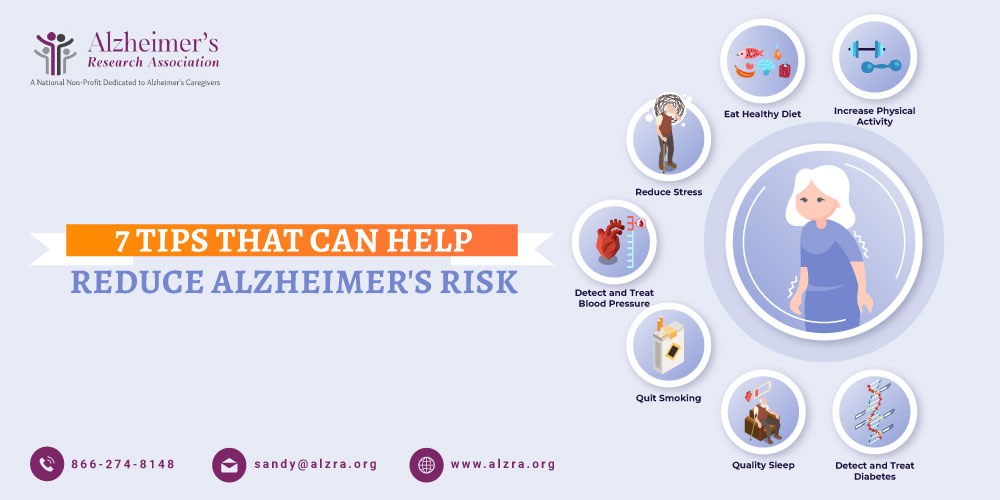Almost 6.5 million Americans1 have Alzheimer’s, a form of degenerative dementia that involves brain regions responsible for controlling cognition, memory, and language. It begins with a slight memory loss and can advance to losing the ability to react to stimuli and carry on conversations.
Alzheimer’s is not a normal part of aging, and scientists are attempting to discover the causes of the disease and develop effective therapies. Increasing data suggest that healthy practices can reduce the risk of the disease.
According to researchers, modifiable factors may account for up to half of the Alzheimer’s risk. Changing your lifestyle or ensuring that diseases like depression and diabetes do not go undiagnosed and untreated can help significantly minimize these factors.
Here are seven important modifiable risk factors that can help prevent Alzheimer’s throughout life.
7 Tips to Reduce Alzheimer’s Risk
1. Increase Physical Activity
We already know the benefits of exercise and physical activity for a healthy heart. It is becoming increasingly clear that these benefits extend to healthy brain activity, including cognitive function, throughout life. Therefore, ensure physical activity, and move around as much as possible during the day. Exercise enhances cognitive function and reduces the risk of dementia.
2. Eat Healthy Diet
The foods we consume can affect our risk of Alzheimer’s. For instance, the Mediterranean diet – that is high in fruits, vegetables, legumes, and cereals and low in meat, sweets, and saturated fat – can significantly help reduce dementia risk. That said, consuming whole food and avoiding fast and processed food can aid in preventing the disease.
3. Reduce Stress
Reduce stress by engaging in activities like deep breathing, meditation, walking or other outdoor activities, and yoga. Stressful situations and depression can impair memory and deteriorate brain function. Thus, stress management is essential.
4. Detect and Treat Blood Pressure
Hypertension, or high blood pressure, is a notable risk factor for stroke and cerebrovascular illness. Despite apparent ties between hypertension and reduced cognitive function, its significance as a precursor to other neurological disorders, including Alzheimer’s, is commonly disregarded. Therefore, monitoring your blood pressure is essential.
5. Quit Smoking
The adverse effects of smoking on your health are well documented, but the link between smoking and an increased risk of Alzheimer’s may be less acknowledged. According to a meta-analysis2 of 19 studies on dementia patients (followed up for at least a year), those who had smoked at baseline had worsened cognitive function at the end of the study.
6. Quality Sleep
Make sure you get enough sleep. Quality sleep is essential because the brain eliminates undesirable compounds while you sleep. Hence, try to get eight hours or more of sleep each night.
7. Detect and Treat Diabetes
Diabetes is a risk factor for Alzheimer’s because it might affect the brain and cognitive function. People with diabetes had an increased risk of Alzheimer’s, according to a systematic review and meta-analysis3 of research.
Alzheimer’s Research Association is a non-profit organization dedicated to helping caregivers of Alzheimer’s disease and dementia. We provide the latest information and news about the illness and helpful tips to help caregivers cope with their daily caregiving challenges. We realize the most important thing that a caregiver needs is financial assistance. Therefore, we provide grants to caregivers to ease their financial burden. Caregivers can apply for grants here: Grant Application Alzheimer’s.
You can also help caregivers in their endeavor by donating as much as possible: Donation To Alzheimer’s Research Associations.
